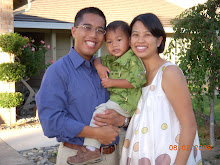Although people from Afghanistan are called "Afghans", like the American "melting pot", they also have different groups such as the Uzbeks, Hazaras, Turkmans, and Pashtuns just to name a few. Each group has their own unique subculture, language, and appearance. In our region, the majority of Afghans are of the Pashtun group which makes up more than 45% of the population. Pashtuns gained worldwide attention after the Soviet invasion of 1979 as well as after the rise and fall of the Taliban. Pashtuns are primarily situated in the Southern and Eastern portions of Afghanistan that border on Pakistan as well as Western Pakistan. Insurgents, such as the Taliban and their allies, are of Pashtun origin which can explain why the region I'm deployed in is considered very dangerous. The closer we are to the Pakistani border, the higher your chances of being surrounded by Pashtuns who are members of the Taliban.
On a more informative note, understand that not all Pashtuns are terrorists. In fact, Pashtuns are a very beautiful and strong-willed people. What I first noticed about the Pashtun children was their eyes...

Just having them gaze into the camera as I took their picture provided almost a calming and soothing affect to rest of my day. Beautiful, simply beautiful...
Now on with the education portion of this blog...Pashtuns are known for their unique language, called Pashto, and their practice of Pashtunwali which is their living philosophy and traditional code of conduct and honor. Pashtuns tightly embrace these codes of honor as they provide a traditional, spiritual, and communal identity. Here are a few of their principles for living:
- Melmastia (Hospitality) - Showing hospitality and profound respect to all visitors, regardless of distinctions of race, religion, national affiliation as well as economic status and doing so without any hope of repayment or favour. Pashtuns are widely considered to be the most hospitable people in the world and a pashtun will go to great extents to show his hospitality, so much so, that in very many recorded cases it has been observed that a they have even provided enemies with sanctuary.
- Badal (Justice/Revenge) - to seek justice over time or over space to avenge a wrong. This applies to injustices committed yesterday or 1000 years ago if the wrongdoer still exists. Justice in Pashtun lore needs elaborating: even a mere taunt (or "Paighor") is regarded as an insult - which can only usually be redressed by shedding of the taunter's blood (and if he isn't available, then his next closest male relation). This in turn leads to a blood feud that can last generations and involve whole tribes with the loss of hundreds of lives.
- Dod-pasbani (Protecting Pashtun culture) - It is obligatory for a Pashtun to protect Pashtun culture from disintegration. Pashtunwali advises that in order to successfully accomplish this, a Pashtun must retain the Pashto language since Pashto is the prime source of Pashtun culture and its understanding isn't just important but essential. Not being able to speak Pashto is often translated by Pashtun society as the inability to understand Pashtun culture, values, ethics, history and community.
- Nang (Honour) - The preservation of honour entails the defence of one's family and one's independence, while upholding cultural and religious requirements.
- Hewad (Nation) - Love for one's nation in Pashtun culture isn't just important, it's essential. A Pashtun is always indebted to their nation and must strive to perfect and improve it. A Pashtun considers it his obligation to defend his country against any type of foreign incursion. Defense of nation means defense of honor, values, culture, tradition, countrymen and self.
As I thought about the concept of honor codes, I thought about the principles that I myself have chosen to live by. After getting married, one of those principles is to never leave the toilet seat up:) But, one of the most important principles is the understanding that I am not the best judge of what is truly right vs. wrong. That wisdom comes from a relationship with a living and loving Creator. And unlike Pashtunwali, His code is founded on forgiveness and reconciliation for ALL people no matter how undeserving.
What codes have you chosen to live by?

"This is good and acceptable in the sight of God our Savior, who desires ALL men to be saved and to come to the knowledge of the truth. For there is one God, and one mediator also between God and men, the man Christ Jesus."
I Timothy 2:3-5 NASB
I Timothy 2:3-5 NASB


2 comments:
Truly educational and inspiring!
Thanks Mike for reminding us that we are all "Blood Brothers".
God blessas you interact with the people you serve!
Love,
Mom Miranda
Mike, i certainly appreciate your thoughtfulness and heart-felt experiences. i'm amazed by the cultures of people. know that you are prayed for!
Post a Comment